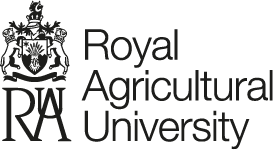What makes an operational Farm Soil Carbon Code? Insights from a global comparison of existing soil carbon codes using a structured analytical framework
Black, Helaina, Reed, Mark, Kendall, Helen, Parkhurst, Robert, Cannon, Nicola, Chapman, Pippa, Orman, Matthew, Phelps, Jenny, Rudman, Hannah, Whaley, Sarah, Yeluripati, Jagadessh and Ziv, Guy (2022) What makes an operational Farm Soil Carbon Code? Insights from a global comparison of existing soil carbon codes using a structured analytical framework. Carbon Management, 13 (1). pp. 554-580. ISSN 1758-3012
|
Text
FSCC_CA_FINAL integrated.docx - Accepted Version Available under License Creative Commons Attribution. Download (412kB) |
Abstract
Soils have the potential to sequester and store significant amounts of carbon, contributing towards climate change mitigation. Soil carbon markets are now emerging to pay farmers for changes in land use or management that absorb carbon from the atmosphere, governed by codes that ensure additionality, permanence and non-leakage whilst protecting against unintentional reversals. This paper represents the first global comparative analysis of agricultural soil carbon codes, providing new insights into the wide range of approaches currently used to govern these emerging markets internationally. To do this, the paper first develops an analytical framework for the systematic comparison of codes, which could be applied to the analysis of codes in other land uses and habitats. This framework was then used to identify commonalities and differences in methods, projects, administration and commercialisation and associated code documents for 12 publicly available codes from the UK, France, Australia, USA and international bodies. Codes used a range of mechanisms to manage: additionality (including legal, adoption, financial viability and investment tests); uncertainty and risks around soil carbon sequestration (including minimum permanence periods, carbon buffers, contractual arrangements and/or insurance policies); leakage (including restriction of eligible practices and monitoring to subtract leakage from verified sequestration); baselines (including multi-year and variable buffers based on empirical data or models); measurement, reporting and verification methods (stipulating time intervals, methods, data sources and assessments of uncertainty); auditing; resale of carbon units; stakeholder engagement; and approaches to ensure market integrity (such as buyer checks). The paper concludes by discussing existing MRV methods and codes that could be adapted for use in the UK and evaluates the need for an over-arching standard for soil carbon codes in the UK, to which existing codes and other schemes already generating soil carbon credits could be assessed and benchmarked.
| Item Type: | Article |
|---|---|
| Keywords: | Agricultural soils, voluntary carbon market, carbon code, MRV |
| Depositing User: | Ms Nicola Cannon |
| Date Deposited: | 18 Nov 2022 10:42 |
| Last Modified: | 18 Nov 2022 10:42 |
| URI: | https://rau.repository.guildhe.ac.uk/id/eprint/16551 |
Actions (login required)
 |
Edit Item |

